
What are the documents which required Compulsory / optional registration under the Registration Act, 1908
What are the documents which required Compulsory / optional registration under the Registration Act, 1908
That under the Sec.17 and Sec.18 of the Registration Act,1908 below mentioned documents are required to be registred.In case of optional its always advisory to get the instrument/document to be registered to save any future miscommunications. A registered document has evidence value in the eyes of court of law.
| Sl.No. | Documents | Registration Required |
| 1 | Gift of immovable property | Compulsory |
| 2 | Transfer of right, title or interest, whether vested or contingent, of an immovable property, wherein the value exceeds Rs.100/-. | Compulsory |
| 3 | Receipt or payment of any consideration on account of creation, declaration assignments, limitation or extinction of any such right, title or interest. | Compulsory |
| 4 | Lease of immovable property for any term exceeding one year or reserving a yearly rent. | Compulsory |
| 5 | Transfer or assignment of decree / order of a Court or any award if it creates, assigns, limit or extinguishes in present or future, any right, title or interest in an immovable property, wherein the value exceed Rs.100/-. | Compulsory |
| 6 | Composition Deed | Not applicable |
| 7 | Any instrument relating to shares in a Joint Stock Company, notwithstanding that the assets of such company consist in whole or in part of immovable property. | Not applicable |
| 8 | Any debenture issued by any such company and not creating, declaring, assigning, limiting or extinguishing any right, title or interest, to or in immovable property except in so far as it entitles the holder to the security afforded by a registered instrument whereby the company has mortgaged, conveyed or otherwise transferred the whole or part of its immovable property or any interest therein to trustees upon trust for the benefit of the holders or such debentures. | Not applicable |
| 9 | Any endorsement upon or transfer of any debenture issued by any such company. | Not applicable |
| 10 | Any document that does not create, declare, assign, limit or extinguish any right, title or interest of the value of one hundred rupees and upwards, to or in immovable property, but merely creates right to obtain another document which will, when executed, create, declare, assign, limit or extinguish any such right, title or interest. | Not applicable |
| 11 | Any decree or order of a Court except a decree or order expressed to be made on a compromise and comprising immovable property other than that which is the subject matter of the suit or proceeding. | Not applicable |
| 12 | Any grant of immovable property by the Government | Not applicable |
| 13 | Any Instrument of partition made by a Revenue office | Not applicable |
| 14 | Any order made under the Charitable Endowments Act 1890 vesting any property in a Treasurer of Charitable Endowments or divesting any such Treasurer of any property. | Not applicable |
| 15 | Any endowment on a mortgage deed acknowledging the payment of the whole or any part of the mortgage money and any other receipt for payment of money due under a mortgage when the receipt does not purport to extinguish the mortgage. | Not applicable |
| 16 | Any certificate of sale granted to the purchaser of any property sold by public auction by a Civil or Revenue Officer. | Not applicable |
| 17 | Authority to adopt a son and not conferred by a Will. | Compulsory |
| 18 | Instruments which create, assign, declare or limit any title or interest, wherein the value of the immovable property is less than Rs.100/-. | Optional |
| 19 | Lease of immovable property not exceeding one year. | Optional |
| 20 | Transfer or assignment of decree / order of a Court or any award if it creates, assigns, limit or extinguishes in present or future. any right, title or interest in an immovable property, wherein the value does not exceed Rs.100/-. | Optional |
| 21 | Wills | Optional |
Tags
General Legal Hashtags
- #PhenixBayLegal
- #LegalAdviceIndia
- #IndianLawUpdates
- #LegalServicesIndia
- #LegalBlogsIndia
Regional Hashtags (Geographical Coverage)
- #NorthIndiaLegalUpdates
- #SouthIndiaLegalAdvice
- #EastIndiaLawServices
- #WestIndiaLegalResources
- #NortheastIndiaLaw
City-Specific Hashtags
- #DelhiLegalServices
- #MumbaiLawUpdates
- #BangaloreLawAdvice
- #ChennaiLegalHelp
- #KolkataLegalConsultation
- #HyderabadLawyers
- #PuneLegalTips
- #AhmedabadLegalServices
- #LucknowLawConsultation
- #ChandigarhLegalAdvice
Broader Indian Legal System Hashtags
- #IndianLegalSystem
- #IndianCourtUpdates
- #LegalAwarenessIndia
- #LawInIndia
- #LegalRightsIndia
- #LawFirmIndia
- #LegalSupportIndia
- #LegalUpdatesIndia
- #LegalAwarenessCampaign
More >>
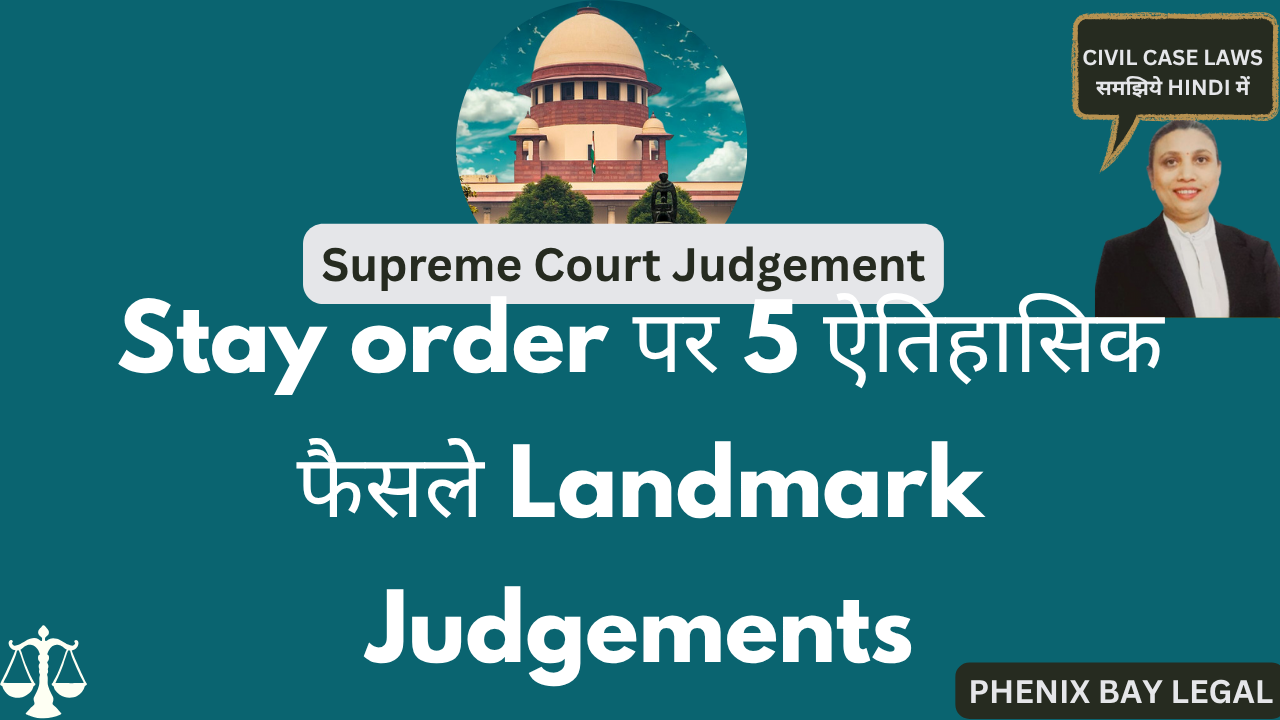
Landmark Judgement on Injunction
In civil, commercial, or even family disputes. But when is a simple injunction suit enough? When do you need to add a declaration of title? And how do courts balance urgency vs evidence in interim relief?
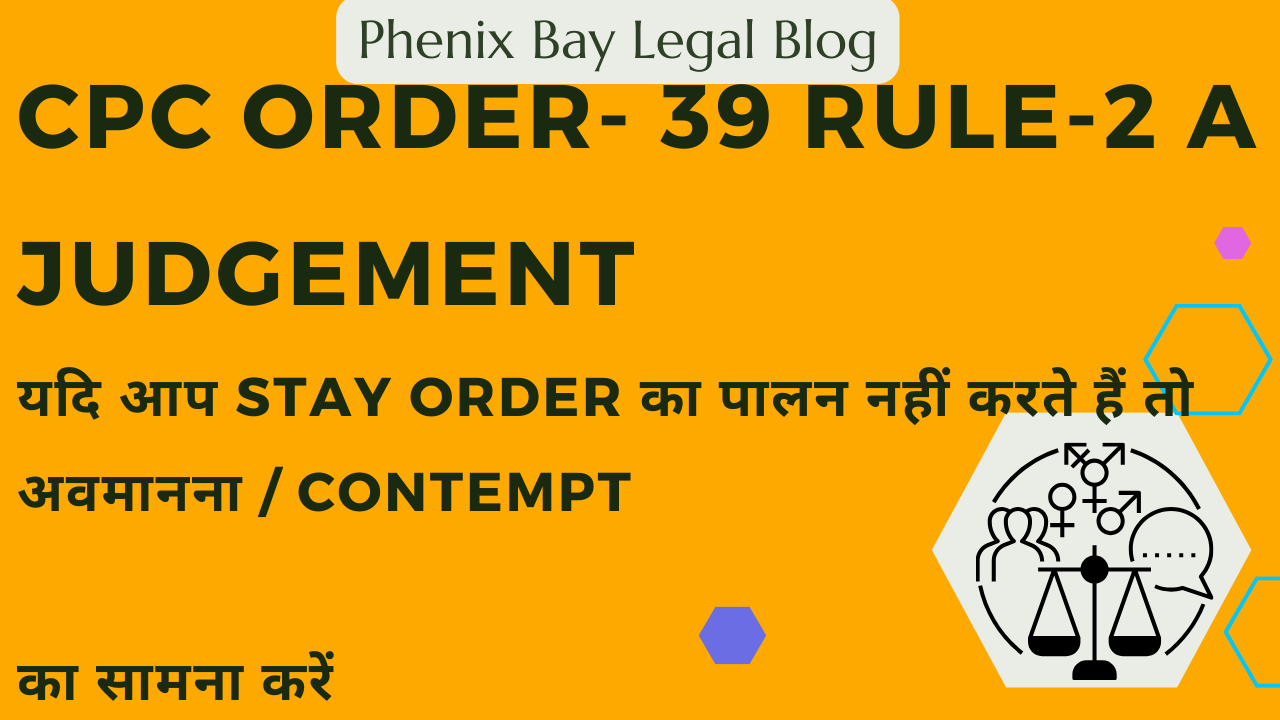
Case Analysis: Stay Order Violation and Contempt of Court by Supreme Court of India
Giving an undertaking to the court is equivalent to an order of injunction—any violation invites contempt proceedings.Injunction orders remain valid until formally vacated by a court—violation before vacation can lead to punishment.
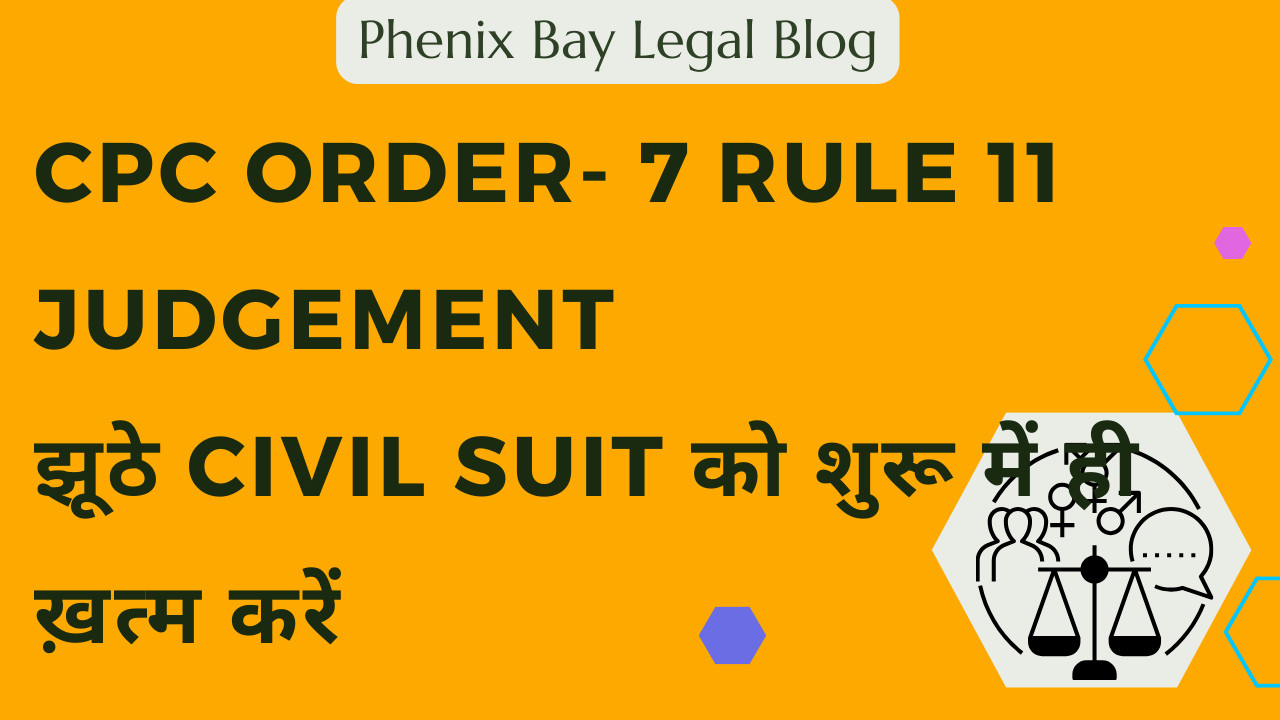
Order 7 Rule 11 of CPC Explanation in Land Mark Judgement
The Sopan Sukhdeo Sable judgment is a landmark ruling that reinforces Order 7 Rule 11 of CPC as a safeguard against frivolous and legally untenable claims. It highlights the importance of examining only the plaint’s contents to decide whether a suit should be dismissed at the threshold.
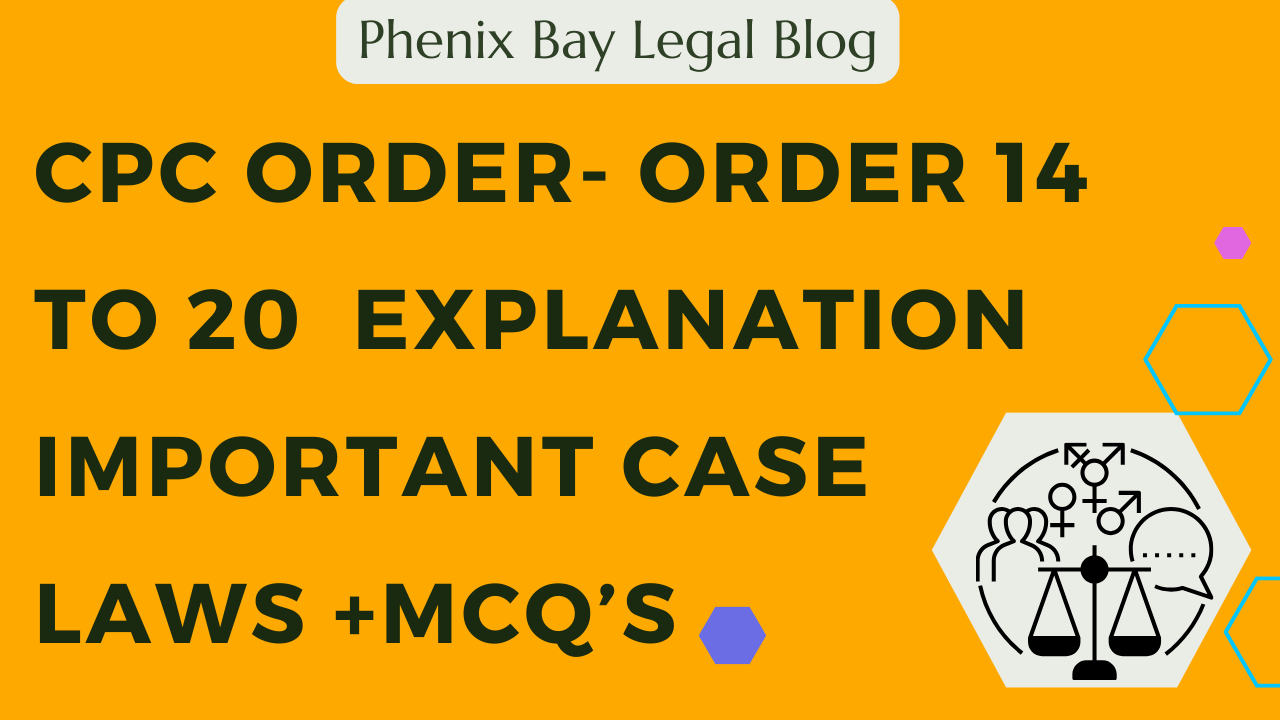
CPC Order- Order 14 to 20 Explanation IMPORTANT CASE LAWS +MCQ’S for Judiciary Exam Preparation
CPC Order- Order 14 to 20 Explanation IMPORTANT CASE LAWS +MCQ’S for Judiciary Exam Preparation
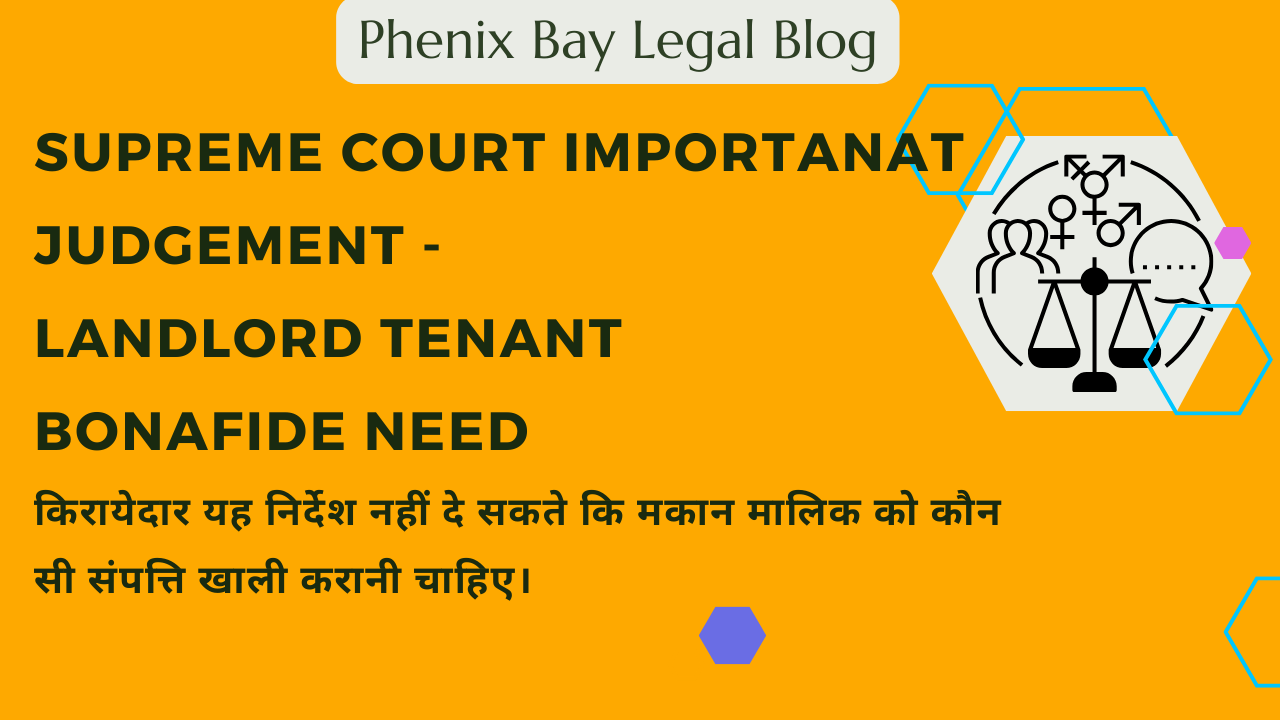
Supreme Court ImportanatJudgement - Landlord Tenant Bonafide need
This case involves a dispute over eviction of a tenant based on the bona fide need of the landlord. The Supreme Court ruled in favor of the landlord, reversing the High Court's decision. Below is a detailed breakdown of the judgment with relevant legal principles, precedents, and reasoning.
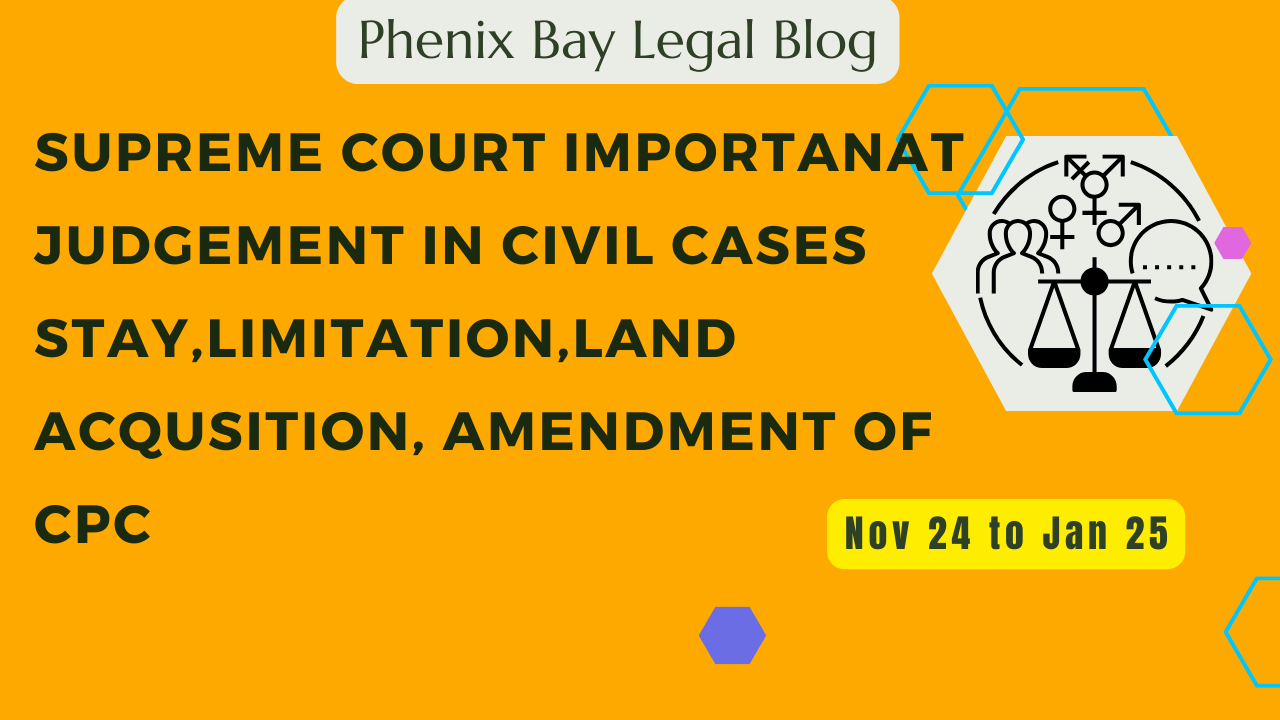
Important Civil Cases Judgement from Supreme Court - November 24 to January 2025
Supreme Court Importanat Judgement in Civil Cases related to Stay,Limitation,Land Acqusition, Amendment of Civil Procedure Code